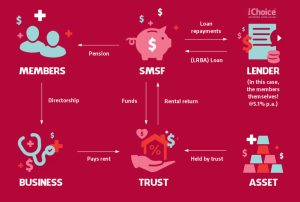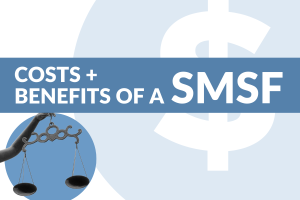The Tax Benefit of a SMSF: Maximizing Returns and Financial Control
Self-Managed Superannuation Funds (SMSFs) have gained significant popularity among individuals seeking greater control over their retirement savings. One of the key advantages of opting for an SMSF is the array of tax benefits it offers. In this article, we will delve into the tax advantages that come with managing your own superannuation fund. What is the tax benefit of a SMSF?
The Power of Contribution Strategies
Contributions to an SMSF can be a powerful tax planning tool. Members have the flexibility to choose between concessional and non-concessional contributions. Concessional contributions, such as employer contributions and salary sacrifice, are taxed at a concessional rate of 15%. This can be particularly advantageous for individuals in higher tax brackets, allowing them to optimize their contributions to minimize taxable income.
On the other hand, non-concessional contributions, made from after-tax income, are not taxed within the fund. This presents an opportunity for individuals to contribute a portion of their income without incurring additional tax, enhancing the overall tax efficiency of their retirement savings strategy.
Strategic Investment Choices

One of the unique features of SMSFs is the ability to make strategic investment choices. By having control over the fund’s investments, members can tailor their portfolio to take advantage of capital gains tax (CGT) concessions. For instance, investments held for more than 12 months may be eligible for a CGT discount of up to 33%, effectively reducing the taxable portion of the capital gain.
Additionally, SMSFs have the flexibility to utilize the capital losses within the fund to offset capital gains, reducing the overall tax liability. This strategic approach to investment management sets SMSFs apart as a tax-efficient vehicle for wealth accumulation.
Tax-Free Pension Phase
Upon reaching retirement age, SMSF members can transition to the pension phase, where earnings on assets supporting the pension are tax-free. This can be a game-changer for retirees, allowing them to enjoy the fruits of their labor without the burden of additional taxes on their pension income. It provides a tax-effective way to generate retirement income and manage the fund’s tax position effectively.
Estate Planning and Tax Efficiency
Furthermore, SMSFs offer compelling advantages in terms of estate planning and tax efficiency. In the event of a member’s passing, the fund can provide tax benefits to beneficiaries. With careful planning, the transfer of assets within the SMSF to beneficiaries can be structured to minimize tax implications, ensuring a smoother transition of wealth to the next generation.
In conclusion, the tax benefits of a Self-Managed Superannuation Fund are vast and can significantly impact the financial well-being of individuals in their retirement years. From contribution strategies to strategic investments and the tax-free pension phase, SMSFs empower individuals to take control of their financial future. As with any financial decision, it is crucial to seek professional advice to tailor these strategies to individual circumstances and ensure compliance with regulatory requirements.



